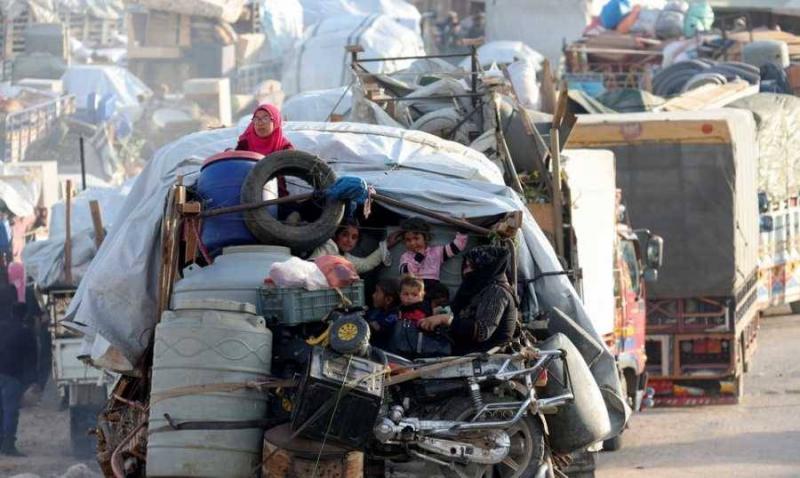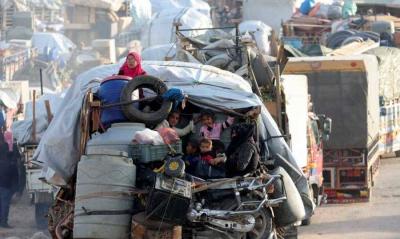The strict measures and actions against violators of residency and labor regulations among Syrian refugees in many areas of Lebanon, especially following the kidnapping and murder of Pascal Suleiman, the coordinator of the Lebanese Forces party in Jbeil, in early April, have led to a new wave of displacement within Lebanese territories. This displacement is particularly from areas with a Christian majority to those with a Sunni majority, mainly located in the north of the country.
This wave began months ago with the outbreak of confrontations between Israel and Hezbollah on the southern border, as the latter decided to open this front in support of Gaza. This prompted hundreds of Syrian refugees to leave the Lebanese border villages and towns where they had been living, moving to other areas deemed safer. Following the killing of the Lebanese Forces official by a kidnapping gang, most of whose members were Syrians, several predominantly Christian villages and towns expelled the refugees and closed their shops, prompting many to relocate to areas in Tripoli, Akkar, Miniyeh, and Dinniyeh in northern Lebanon, where the Sunni majority resides.
Ahmed Al-Khayr, a deputy in the National Moderation Bloc from the northern second district (Tripoli – Miniyeh – Dinniyeh), confirms these details, discussing two main reasons for the new displacement wave. The first is the Israeli assaults on southern Lebanon, which led to the displacement of Syrians from southern villages towards the north. The second is due to incitement, racist practices, and assaults that have occurred against Syrians in other areas. He added in a statement to "Asharq Al-Awsat": "The proportion of these individuals is significant. It has become clear today, due to this new reality, that the Beqaa and northern regions bear the brunt of the Syrian displacement economically, socially, and security-wise. The Lebanese state must swiftly outline a clear roadmap on how to address the Syrian displacement crisis in general, particularly the recent Syrian displacement within Lebanese territories towards the north and Beqaa."
Al-Khayr points out that there is hope based on what emerged in recent days during the Parliament session, where a national consensus that we were part of aimed at unifying the stance and approach on how to deal with the reality of Syrian displacement throughout Lebanon, especially the new reality in the north and Beqaa regions.
Mazen D. (55 years old), a resident of Akkar, states that many refugees have left the Batroun, Bsharri, and Jbeil areas and headed to Tripoli and Akkar, as they view the Sunni regions as safer environments for them today. He noted in a statement to "Asharq Al-Awsat" that there has been a 12 percent increase in the number of refugees in these areas, pointing out the decline in the presence of Syrians on the streets and in markets, as well as their decreased interaction with Lebanese citizens, with most of their illegal shops closing and their activities limited to trades and workshops. He adds that a significant portion of them declared a strike for several days and refrained from work in protest against the massive pressures they are facing.
It appears that the majority of the new refugees have headed north, not to the Beqaa, as a responsible official source confirms, pointing out in a statement to "Asharq Al-Awsat" that no serious movement has been recorded in the eastern areas or in the existing camps there.
For his part, Dr. Bilal Al-Hachimi, a deputy in the Central Beqaa, discusses some movement towards the area, specifically to towns and villages with a Sunni majority, as they are considered safer by the refugees after unacceptable sectarian, populist, and racist rhetoric against them. Al-Hachimi agrees in a statement to "Asharq Al-Awsat" that there is a problem due to the displacement, but that it should be resolved rationally and through organizing the presence and pathways for return within specific timelines, not as it is happening today. Al-Hachimi questions why the recent recommendations issued by Parliament did not call for Hezbollah to withdraw from the Syrian border areas where around 400,000 Syrian refugees residing in Lebanon are located.




